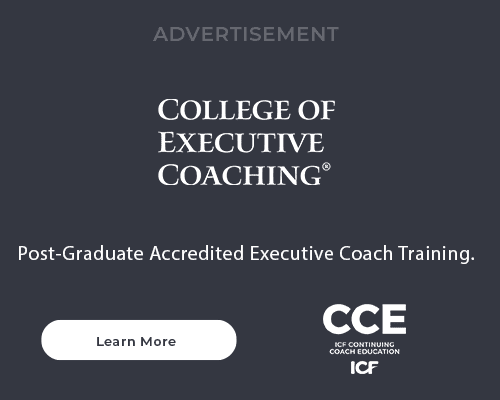The Role of Assessments in Coaching Emotional Intelligence
Emotional intelligence is a common buzzword these days in the personal and professional development space. There are many definitions and multitudes of “coaching” programs promising to increase emotional intelligence. According to Daniel Goleman, “Coaching is the most effective method for improving in areas of emotional intelligence deficit. Having expert support during your ups and downs as you practice operating in a new way is invaluable.” However, given that the first steps toward emotional intelligence are self-awareness and self-management, how can we, as professional coaches, serve our clients in this development without becoming teachers and consultants? If a client lacks self-awareness, can we achieve good results by only asking questions?
Assessment tools can provide direction for creating a successful coaching relationship. Both paid and free assessments are available to help clients explore their emotional intelligence. These tools are a powerful way to jump-start the self-awareness process with our clients. So, how do we, as professional coaches, partner with our clients to get the most out of these directive informational tools?
In my coaching experience, I have discovered that the ICF Core Competencies provide a solid framework for effectively serving our clients. ICF Core Competency 7: Evokes Awareness, states that the coach “facilitates client insight and learning by using tools and techniques such as powerful questioning, silence, metaphor, or analogy.” Specifically, the guidelines for the coach’s ability to “adjust the coaching approach in response to the client’s needs” and “share observations, insights, and feelings, without attachment, that have the potential to create new learning for the client.” have provided me with a structured approach to help my clients navigate the mysterious world of emotional intelligence, even with the use of information and suggestion-laden directive assessments.
When it comes to helping clients develop emotional intelligence through assessment tools, we, as coaches, must focus on partnering with clients to identify or reconfirm what they want to accomplish, just as we would with any goal our clients may bring to the coaching relationship.
Throughout the coaching process, as our clients begin to gain awareness through an assessment, we can collaborate with them in their development by asking open-ended questions to help them grow in the specific competency they want to work on. Most emotional intelligence competencies are interrelated; progress in one area strengthens others. We support the client’s self-discovery by asking questions, challenging long-held ideas or mindsets, highlighting insights the client gains from an assessment, and fostering reflection through our coaching conversations. The main thing to remember is that we must offer questions, ideas, and tools without attachment. We never force the client to use any of these; rather, they choose how they want to grow and develop. After offering a reflection, an insight based on our observations, or even an insight from a tool to facilitate growth in an emotional intelligence area, you could ask your client questions such as:
- What about this resonates with you?
- What awareness have you gained now?
- What insights or ideas come to mind?
- Where would you like to go from here?
- How would you like to develop this competency?
As clients explore their reflections and insights, they pave the way to their own self-awareness and self-management. This is what professional coaching is all about. I often find that this type of awareness opens new ways of thinking and more options for clients, allowing them to become unstuck, build new mental models, increase their performance, and achieve healthier interpersonal interactions.
I am confident that the process of human development is prime territory for coaching to shine! I want to encourage coaches not to shy away from directive-based professional development tools. Instead, let us recognize that coaching is one of the most effective ways to leverage these tools for personal and professional success.



